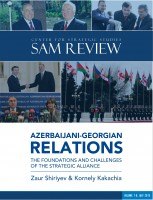(Korea JoongAng Daily) This year marks 110 years since the first batch of Koreans immigrated overseas. These immigrants first left Korea to escape poverty (and later colonization by Japan), and to pursue dreams and education. Some 7.26 million Koreans – about 10 percent of the Korean Peninsula’s entire current population – have since immigrated to more than 160 countries around the world. And these immigrant Koreans – whether in the United States, China, Russia, or elsewhere – do not forget their Korean roots, perhaps a sign of strong national identity. Yet a fair number of these overseas Koreans who have witnessed Korea’s development are also starting to return to their home country.
Whether the large overseas population is a blessing or a burden to the country is debated, but Greek-born Harris Mylonas, a political science and international affairs professor at George Washington University in Washington, D.C., described Korea as “lucky” to have such a large diaspora. Mylonas, who recently published “The Politics of Nation-Building: Making Co-Nationals, Refugees, and Minorities,” discussed diaspora policy at a forum hosted by the Asan Institute for Policy Studies last week.
“My family has been tormented and troubled by identity and nation-building,” he told the JoongAngIlbo on Aug. 8, describing how his interest in diaspora policy stems from a background in which his paternal grandfather was Greek Orthodox that spoke both Turkish and Pontic-Greek from the Black Sea region and his paternal grandmother was half Russian half Greek who was exiled from Russia by the Bolsheviks. Both were part of the Greek diaspora. Following the collapse of the Ottoman Empire, the two met in Greek Macedonia and got married. […]











